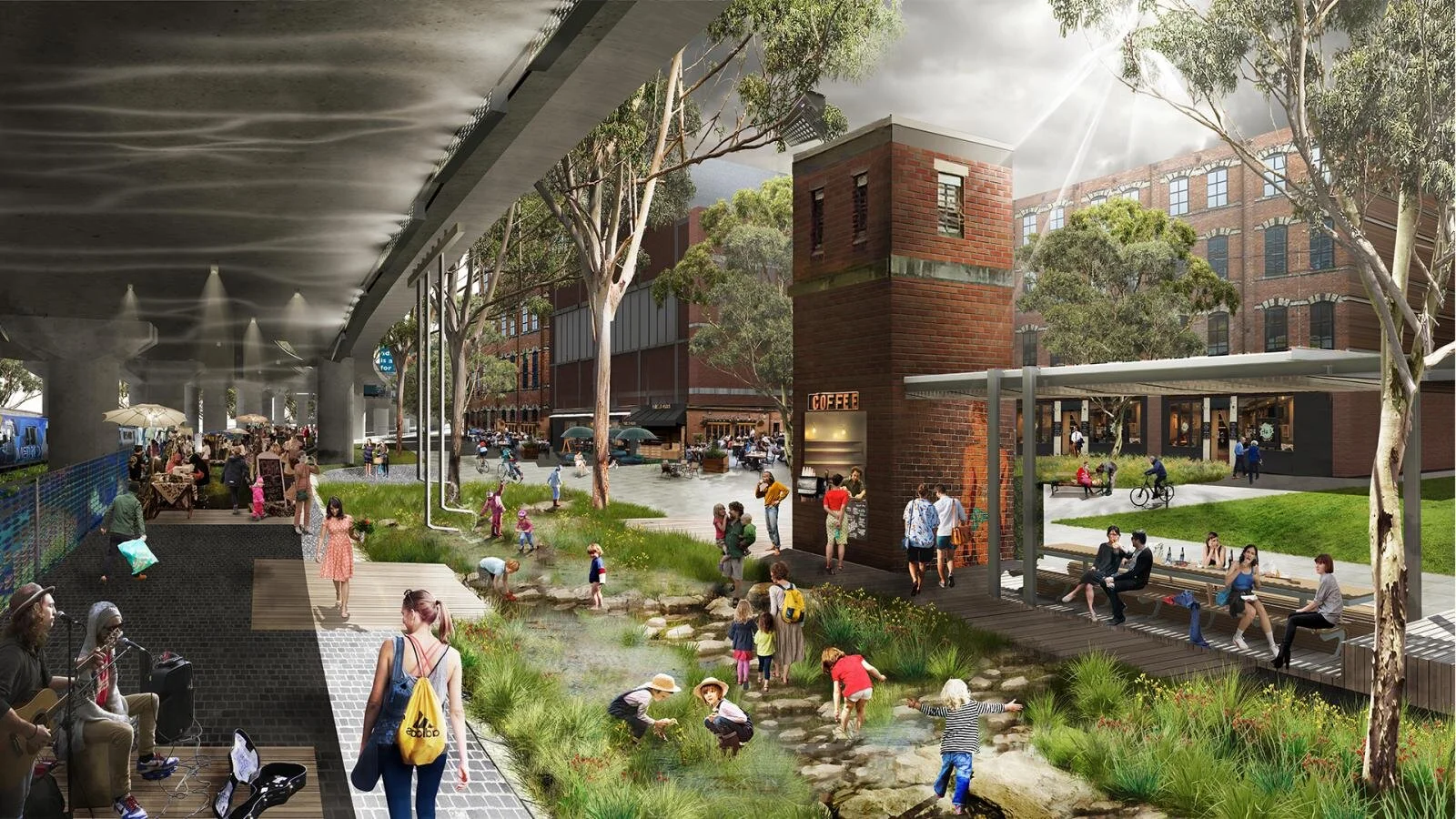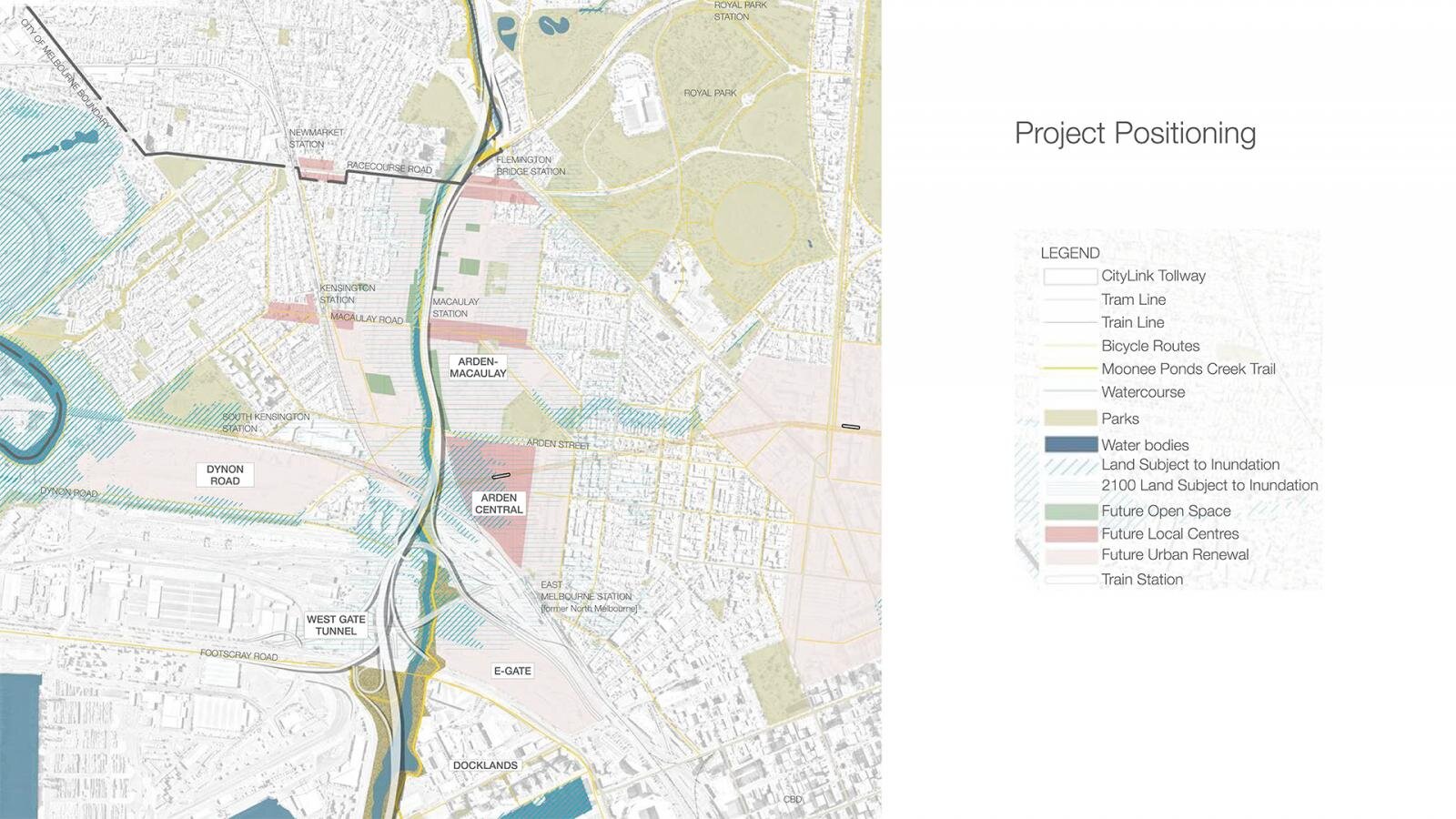Moonee Ponds plan proves a winner
The Australian Institute of Landscape Architects has awarded McGregor Coxall a 2019 landscape planning award for their 10-hectare Moonee Ponds Creek proposal for Melbourne.
The plan will revitalise the creek with a mixture of public open spaces, while managing the flood risk of the creek corridor. It will restore Moonee Ponds Creek to its natural state, with healthy ecosystems and habitats for flora and fauna, and acknowledge the strong Aboriginal connection to the site.
The Moonee Ponds Creek plan will encourage social and ecological interaction.
McGregor Coxall says it “led an investigation to reimagine Moonee Ponds Creek as a thriving open space corridor supporting a diversity of life forms, fundamental to the strength, resilience and liveability of the city.”
Melbourne city councillors voted to approve the plan at their 20 August Future Melbourne Committee meeting, following a period of public engagement. The six thematic goals for the project were water management, open space, biodiversity, movement, history and culture, and collaborative governance.
Moonee Ponds Creek used to be a thriving wetland corridor that swelled to fast-flowing watercourses during heavy rain, but as Melbourne grew the ponds were replaced and disengaged from the local community.
The plan has been approved by the local council.
Stretching 25-kilometers from near the airport in Melbourne’s north-west to Docklands, the creek flows for five kilometres through some of Melbourne’s fastest growing areas. With the city’s population set to double by 2040, blue and green infrastructure will become vital to alleviating pressure on the city’s climate.
The creek provides a break from the urban environment, offering a commuter passageway that can be used for jogging, cycling, dog walking and engaging with nature. The idea is that the surrounding communities will be expanded into a network of biodiversity habitats and open spaces, activating the waterfront and creating a space for locals to relax.
The plan includes a flood resiliency system.
There is a need to address pollution and litter in the creek, as well as consideration of the effect climate change will have. Moonee Ponds Creek has a long history of flooding, so McGregor Coxall plan to integrate levees and floodable spaces into the public realm.
A new public space will be opened between Macaulay Train Station and the creek, offering a terraced public park and flood resiliency system. Stormwater will be captured as it runs off the streets and cleansed before entering the creek. The street will be tree-lined and raised with a public plaza, and a levee wall with an integrated grass berm will demarcate a sloped lawn.
The creek flows for five kilometres through some of Melbourne’s fastest growing areas.
The Tidal Underpass will provide a simple boardwalk system with salt-water wetlands; a piped network that allows for flexibility and control over water levels, and therefore variation in its vegetation, habitat and ecologies.
According to the Moonee Ponds Creek Strategic Opportunities Plan, “the future vision for the creek encourages social and ecological interaction through creek naturalisation and landscape interentions [sic] that bring nature to the city. Permeating surrounding communities those restored ecological systems will provide a necklace of parks and wetlands, transforming the existing underutilised spaces that currently separate the creek from the surrounding urban fabric of the city, and knitting those together.”




